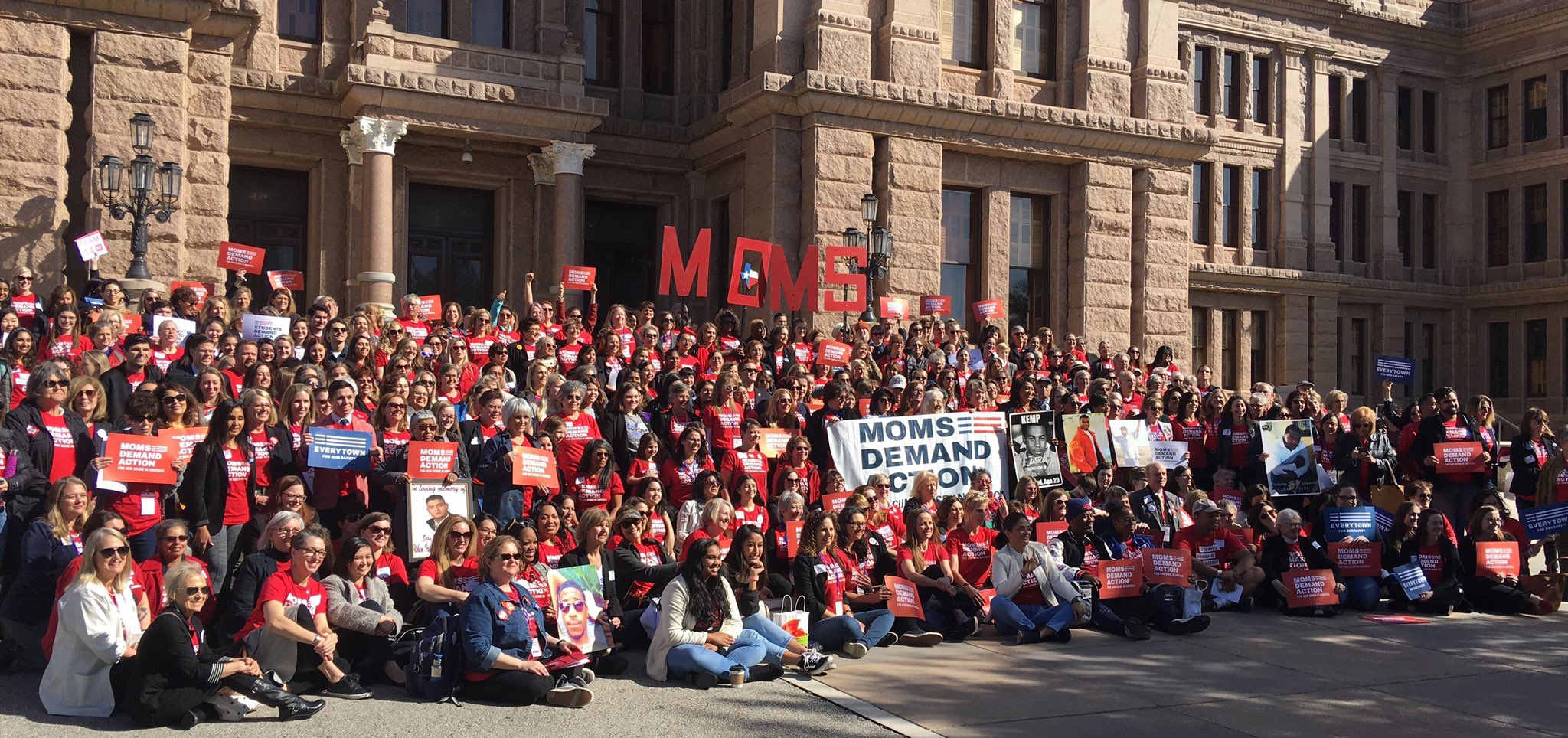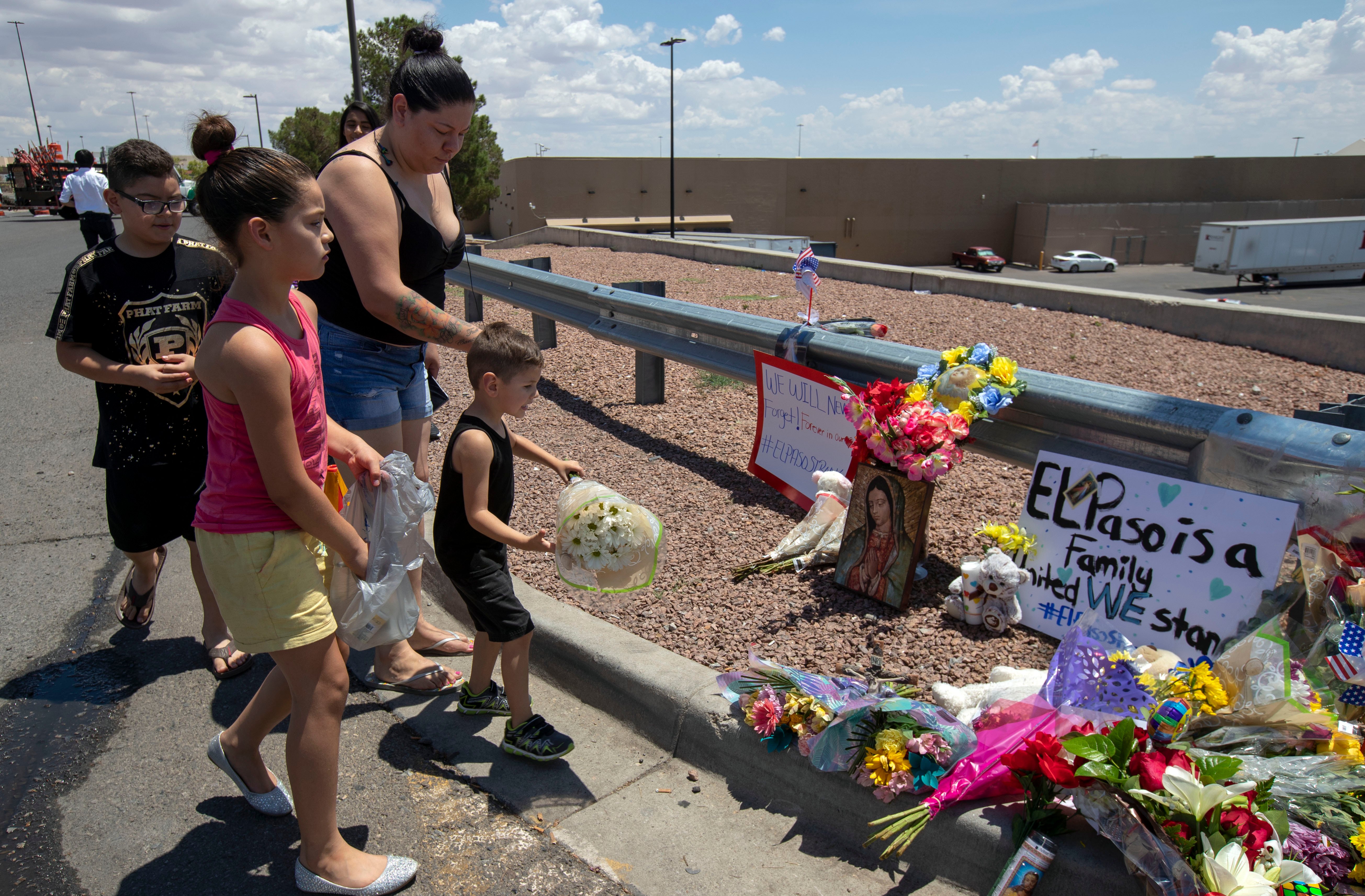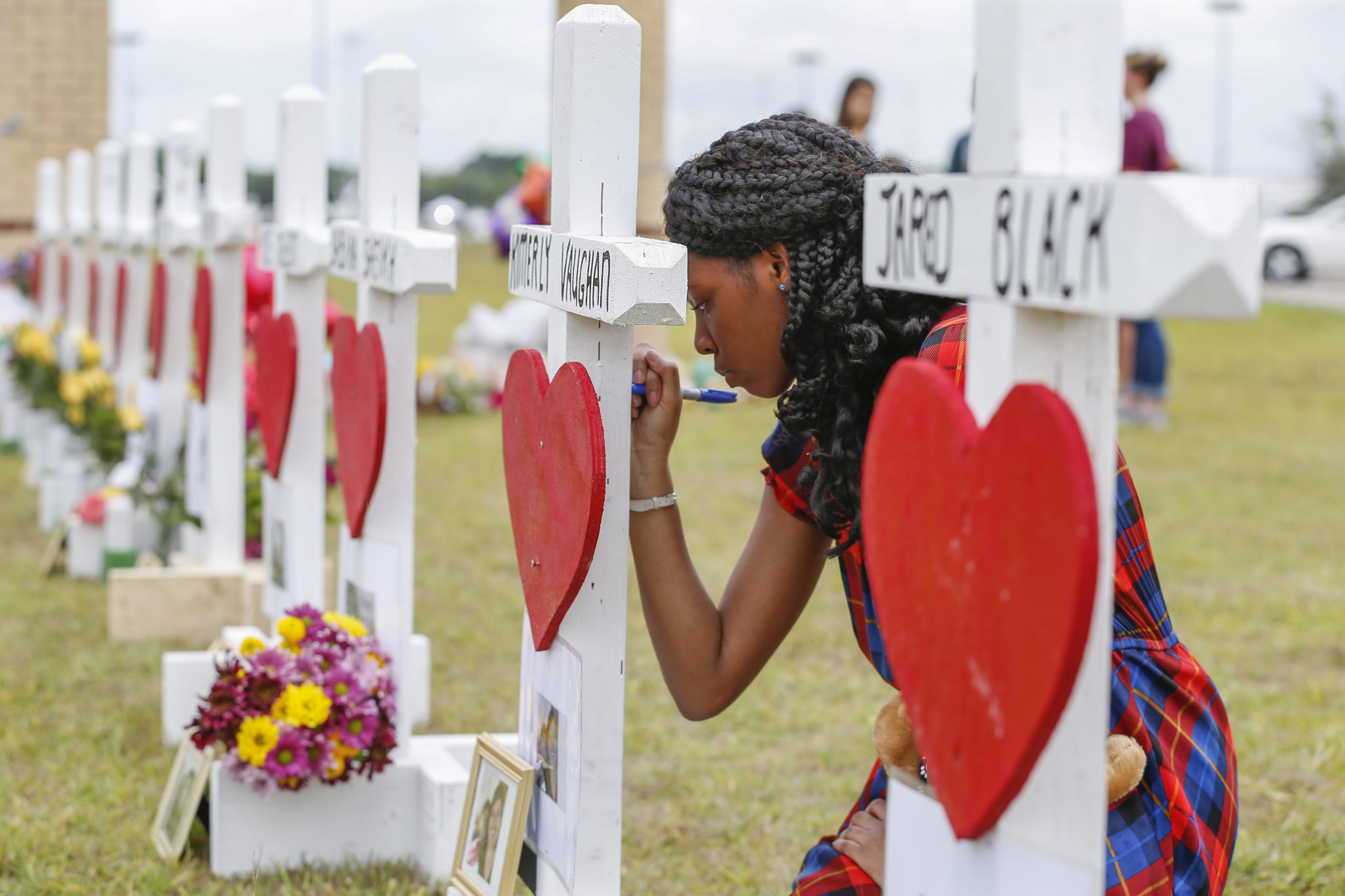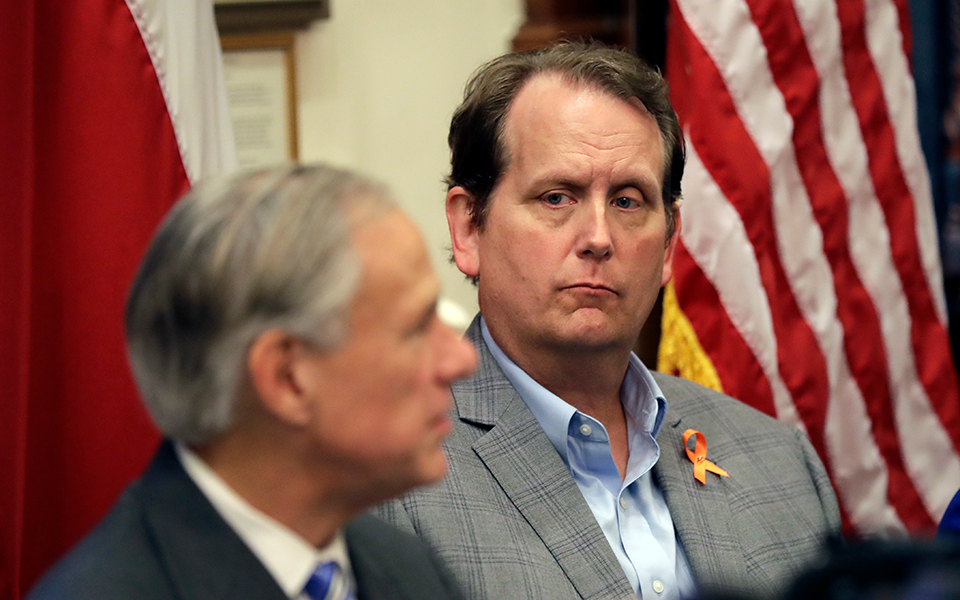
Why a Texas Gun Control Activist is Optimistic About the Chances for Reform
Texas Gun Sense’s Ed Scruggs on how Abbott and Patrick talk about guns behind closed doors—and what that says about the prospects for change.

Above: Ed Scruggs, right, listens to Texas Governor Greg Abbott, left, during a roundtable discussion to address safety and security at Texas schools in the wake of the shooting at Santa Fe High School in 2018.
Ed Scruggs has been on the frontlines of the battle to reform Texas’ gun laws ever since the Sandy Hook massacre. That 2012 tragedy galvanized a movement that has continued to grow in size and strength with each mass shooting that has followed.
It’s been an uphill battle for Scruggs, the board president of Texas Gun Sense, and other gun reform activists in Texas as horrifying mass shootings—from the church in Sutherland Springs to the high school in Santa Fe—keep coming. Meanwhile, Texas Republicans continue to call for more thoughts and prayers and more good guys with guns.
But after a gunman shot and killed 22 people in El Paso in early August, followed less than a month later by a drive-by mass shooting in Odessa and Midland, there were signs that the political ground on guns had softened.
Lieutenant Governor Dan Patrick, a staunch ally of the National Rifle Association, said he would break with the gun lobby and push to close the background check loophole for private sales, which the Odessa shooter—who had previously been denied a gun after failing a background check—used to get a rifle.
Closing the background check loophole has been a longstanding priority for gun reform advocates; getting Patrick, the state’s consummate right-winger, on board would amount to a political earthquake. Democrats in the Legislature demanded that the governor call a special session so lawmakers could pass reform legislation.
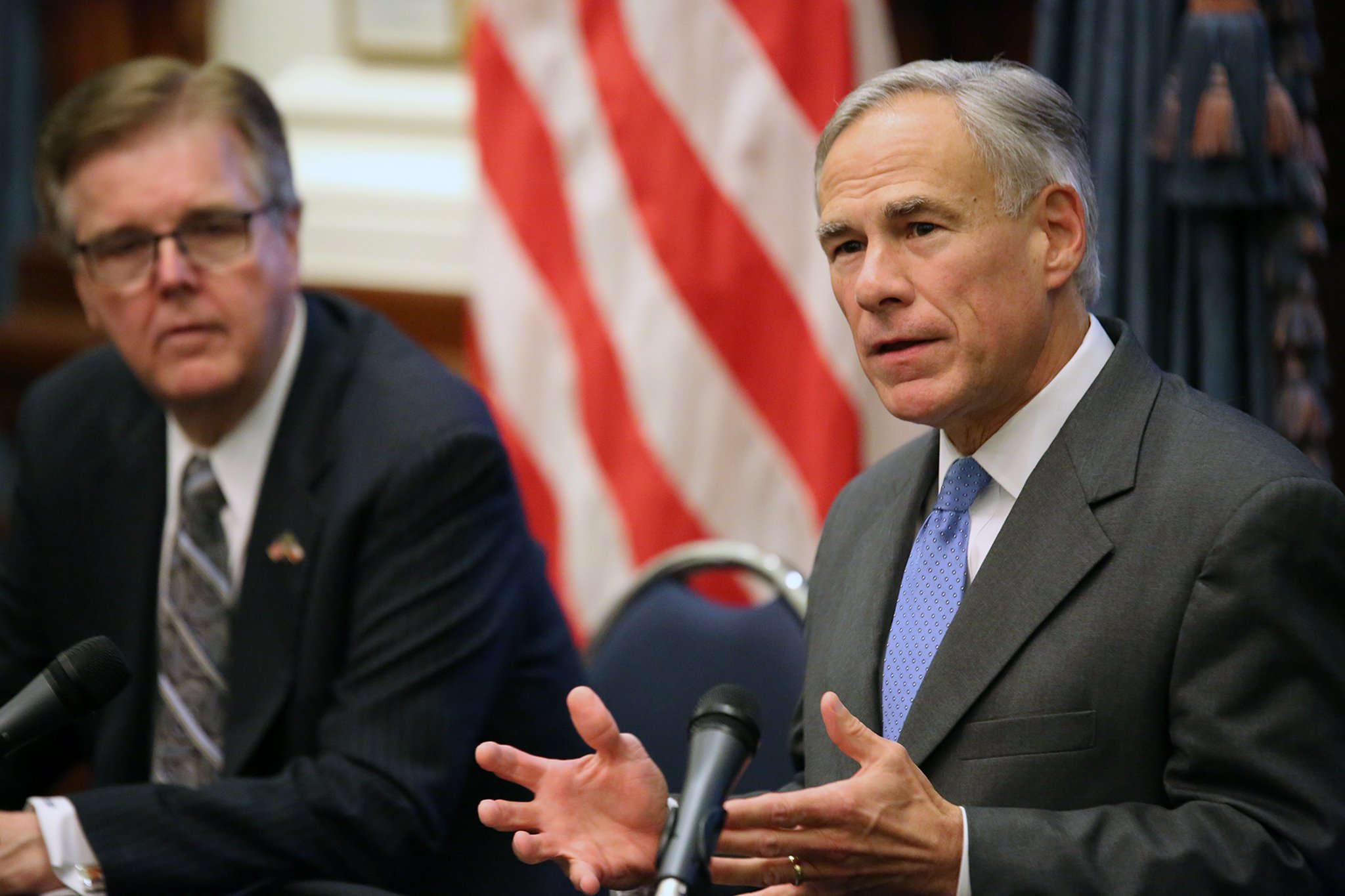
However, Texas Governor Greg Abbott has not signaled that he has any intention of doing so, meaning that any attempts at enacting gun reform will have to wait until 2021. Instead, he held meetings with legislators, advocates, and law enforcement officials and signed a series of executive orders aimed at better equipping authorities to prevent and respond to shootings. On September 12, Abbott released his Texas Safety Action Report that outlines a litany of gun policy recommendations, including a crackdown on straw purchases (in which someone buys a weapon on behalf of someone who cannot), stronger reporting requirements for stolen firearms, and a quicker rollout of the state’s safe storage campaign, but notably stopped short of calling for mandatory background checks for private sales.
Abbott included Scruggs in the first meeting in Austin of the Texas Safety Commission, a group the governor formed after the El Paso shooting. Nine days after that meeting, the Odessa shooting happened.
The Texas Observer spoke with Scruggs by phone.
Texas Observer: What was the first Texas Safety Commission meeting like?
Ed Scruggs: Nothing was off the table. The spirit was heavy. I think El Paso changed the equation in many ways because of the nature of it being a hate crime and being just so heinous and over the top. There was a sense of urgency in the discussion.
You were also involved in Governor Abbott’s roundtable meetings after the Santa Fe shooting last year. Was this meeting substantially different?
After Santa Fe, the discussion was more limited to school safety and school security. Patrick said nothing; he listened, mainly. In this one, it was more wide open because we were talking about gun violence in general. The lieutenant governor was very energetic and eager to toss ideas out there and to discuss things. And so was the governor. Now whether that meant they were actually open to doing something, I have no idea. There were times I felt they were passing a lot of ideas by the [representative of the] Texas State Rifle Association to see how they would react, but they did want a sense of [other] people’s general reactions.
What were some of the ideas that Abbott and Patrick wanted feedback on?
The one that stuck out to me was the idea of closing the background check loophole in private sales. The lieutenant governor brought that up and the governor seconded his concerns. Both of them said there was a lot of room for potential abuse and they didn’t think it was smart for a gun owner to try to sell their weapons that way; they could possibly be selling a gun to a terrorist and they wouldn’t know. Which was very encouraging to hear them say.
So they bring that up and then, 10 days later or so, Odessa happened. And then we find out that that shooter abused the loophole. So that really stuck with me. Then you had Patrick make his comment on Fox News about wanting to close the loophole. That’s why I was highly disappointed that the governor did not recommend closing the loophole [in his report from the Safety Commission meeting].
One of the things that Patrick and the governor brought up in our meeting was they had some concern about the ability of people to carry long guns openly without a license, especially in city centers and urban areas. And we had just had the case in Austin where they caught someone, with an AR-15 and several other weapons, who was wanted in Houston on a domestic abuse charge. The governor brought that up several times, I think because of what happened in El Paso. Everything [the El Paso shooter] did was legal until the moment he pulled the trigger.
[Patrick and Abbott] asked [TSRA], ‘What would y’all think about that?’ Because you already have to have a license to openly carry a handgun, so what would the difference be? And [TSRA] was pushing back on that; they thought some members would think it would think that would impede their liberty. … That’s just another idea that seemed to disappear, and I’m very disappointed in that as well.
Do you think the political dynamics around guns in the Texas GOP have actually shifted in the wake of El Paso and Odessa?
We’re at least having these conversations. If you recall after Sutherland Springs, there was no round table. There were no hearings. Now, of course, we have to have [these conversations] because the situation has deteriorated. Because I’ve been in meetings with the governor and state officials, I do believe that personally they are very troubled by this. But it’s confounding to see how little movement they have to actually do anything.
What do you think about the contents of Abbott’s new report, and what seems to be his decision not to call a special session?
At the pace we’re on, we’re going to have another mass shooting [before 2021]; maybe more than one. So what happens the next time and we still haven’t done anything? What happens the time after that and we still haven’t done anything?
There are a lot of states, even other red states, where people could come together on a few things after something like El Paso and Odessa. Ohio’s Republican governor, who’s very conservative—a few days after Dayton, he called for universal background checks and a red flag law. No hesitation. He didn’t need a roundtable, didn’t need a commission, didn’t need to consult with a bunch of people. He just did it. You can’t do that in Texas. We need to figure out why.
If it’s like last legislative session, the wall goes up and anything with the word gun gets tossed out unless it expands gun rights. We gotta change that. But the failure to address the elephant in the room, which was the private sales loophole, it just raises serious questions about our ability to get real on the issue.
How big of a political stick do the NRA and TSRA wield in the Texas Legislature?
It’s a big stick, make no doubt about that. They get in to see anyone they want to see and they can say anything they want. They can threaten a primary challenge with folks that don’t vote their way. I think they just got used to having their way around the Capitol for almost two decades now. And until recent years, no one really ever pushed back. When they tried to get campus carry, that started to generate some pushback. And certainly after Sandy Hook and now every session, we have more and more people joining with us.
There are more of us that show up to hearings on legislation. I’ve noticed that [TSRA] shows up now to more legislative hearings. That’s a signal that they know that we mean business and so they take us seriously. They’ve had a huge level of influence over the years. I think it’s almost just ingrained in the system at the Capitol. So it’s a hard rock to move.
I’m convinced [reform] will happen. I can’t tell you when, but I’m convinced that it will.
This interview has been edited for length and clarity.
Read more from the Observer:
- ‘The Wolf is in the Henhouse’: A former Secret Service agent pledges to do whatever it takes to secure schools in Texas City ISD — and he couldn’t care less what you think.
- The Roots of Narendra Modi’s Divisiveness Are at Odds With the Idea of a Diverse Houston: The “Howdy Modi” event is drawing criticism for welcoming the Indian prime minister amid human rights issues plaguing his country.
- Some Small Texas Towns Are Declaring Themselves ‘Sanctuary Cities for the Unborn’: Frustrated with the Legislature, Texas city officials are taking on abortion rights through local policy measures.
